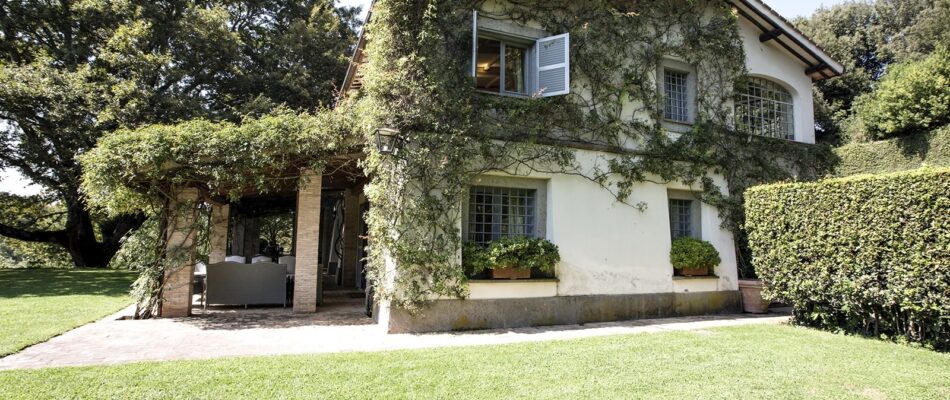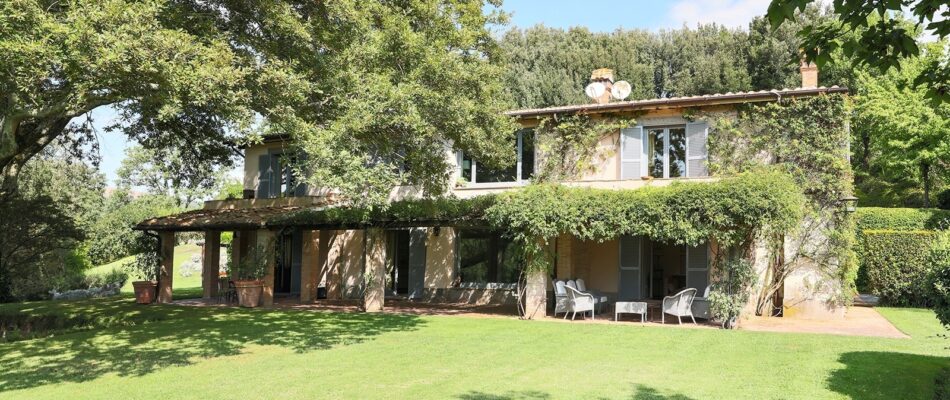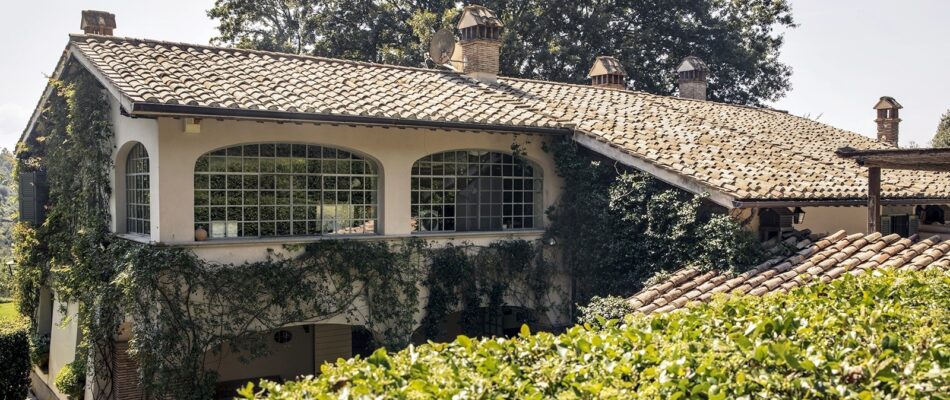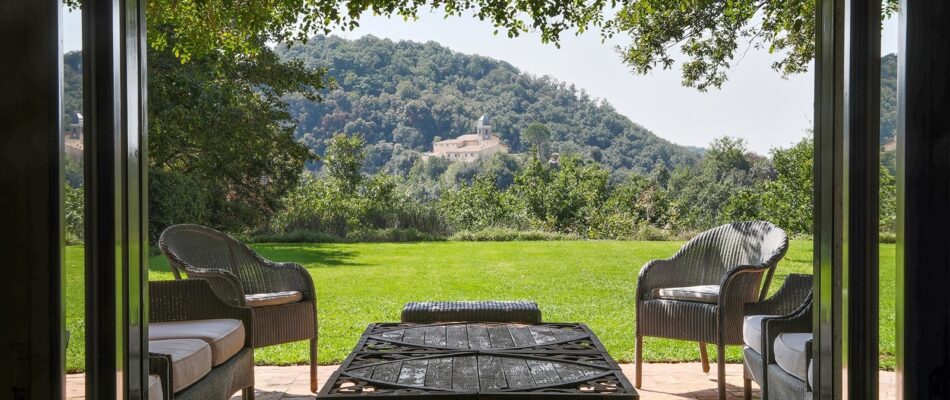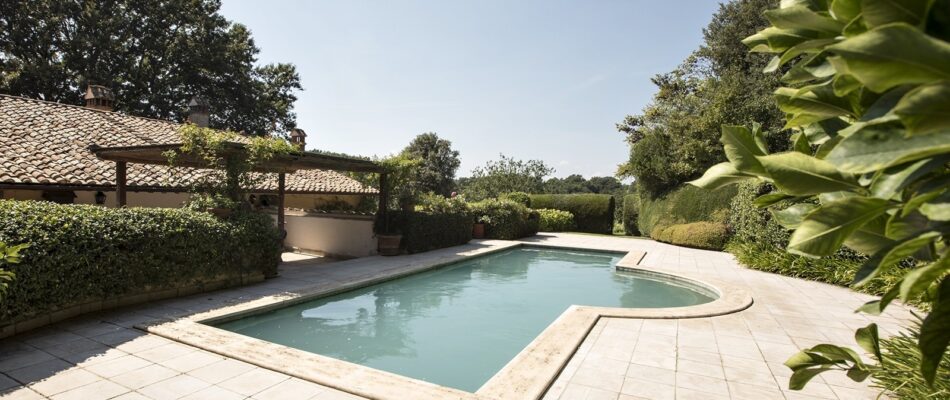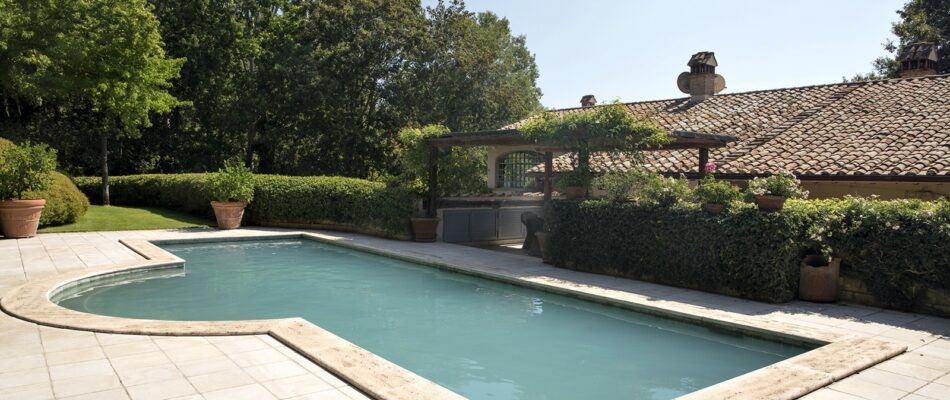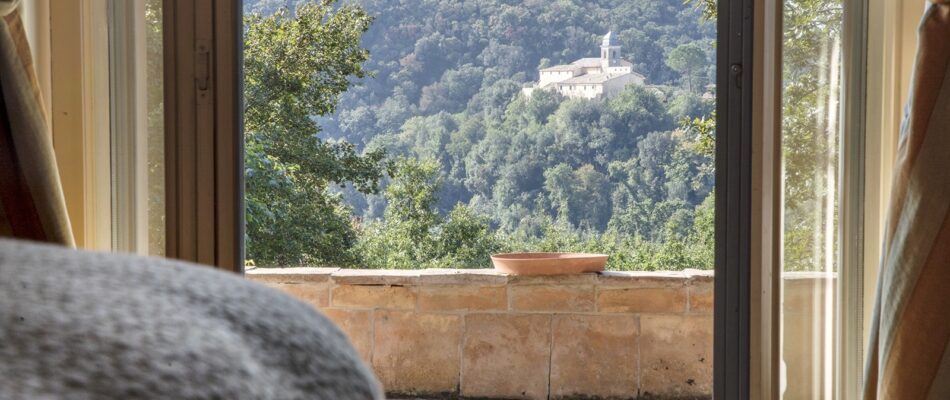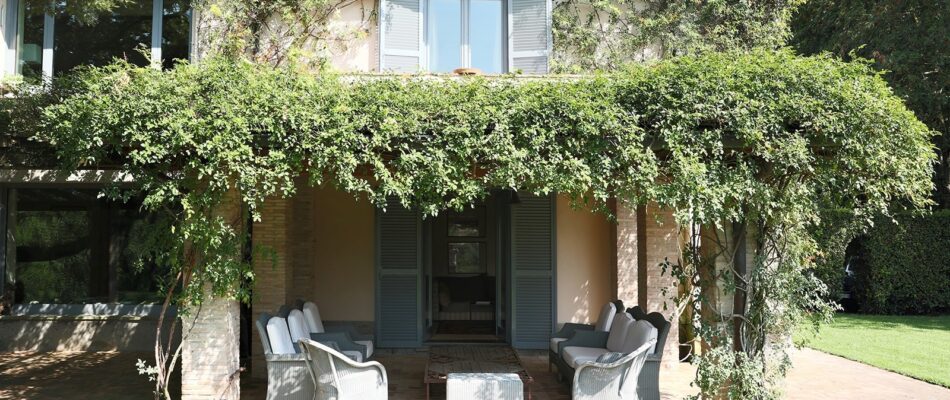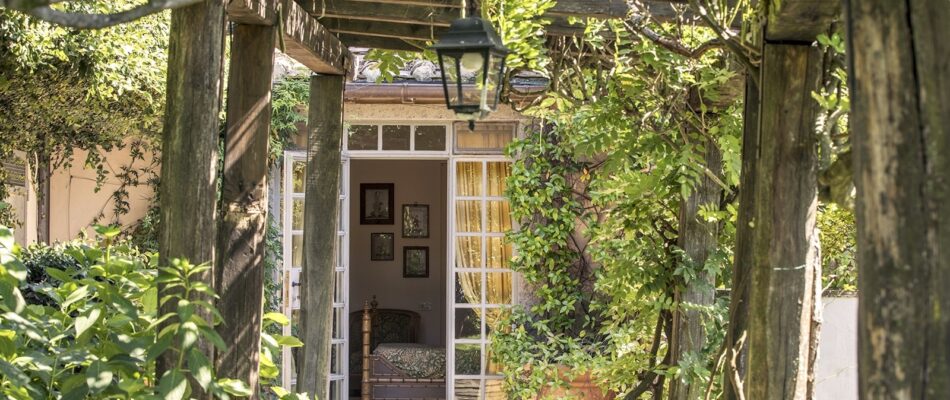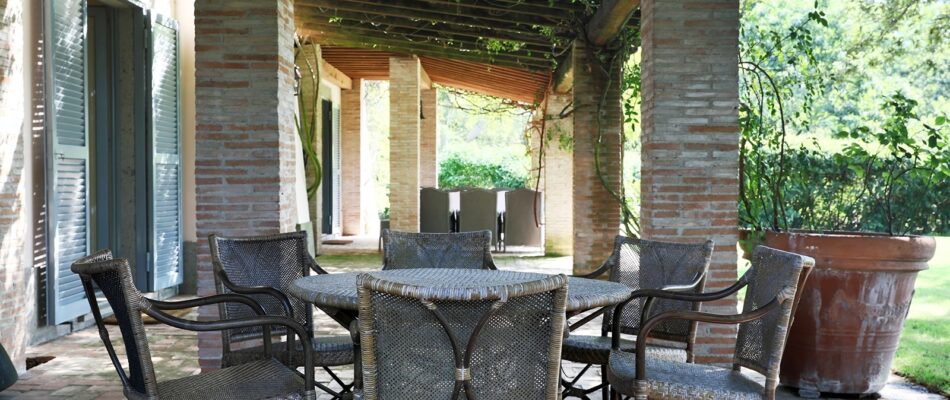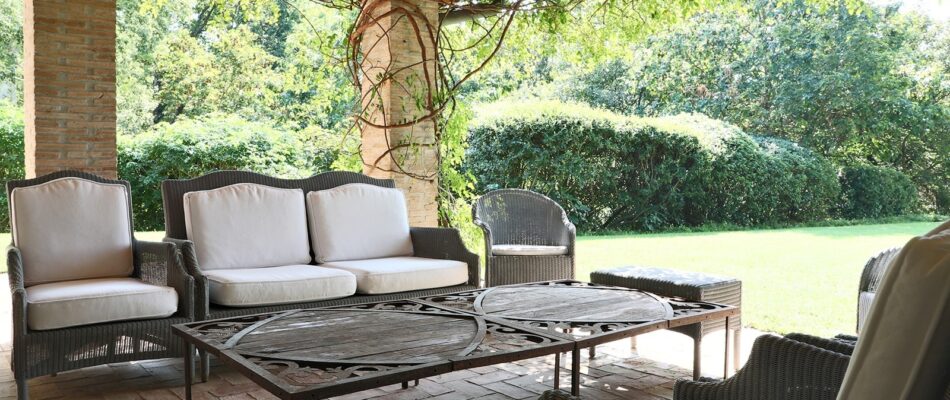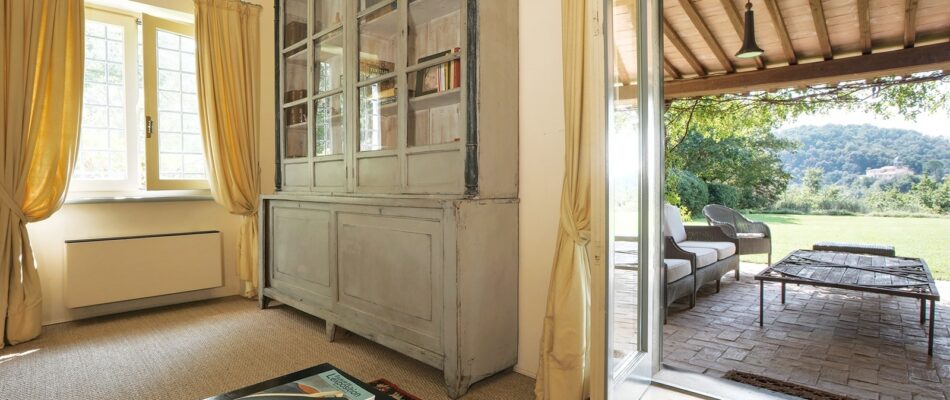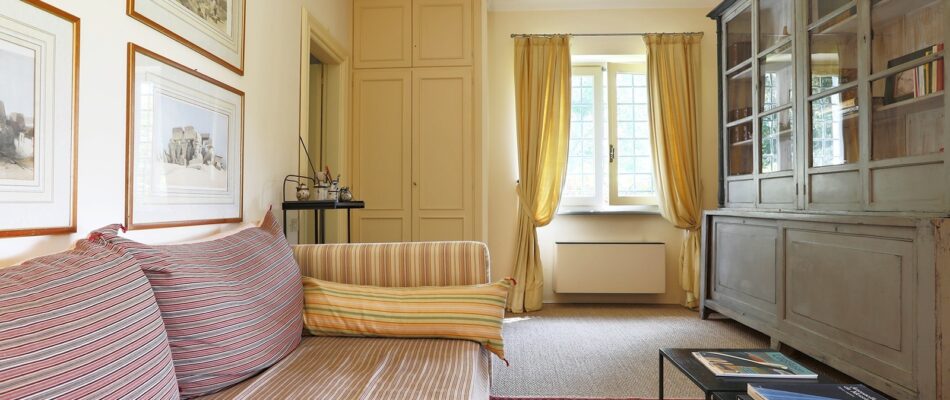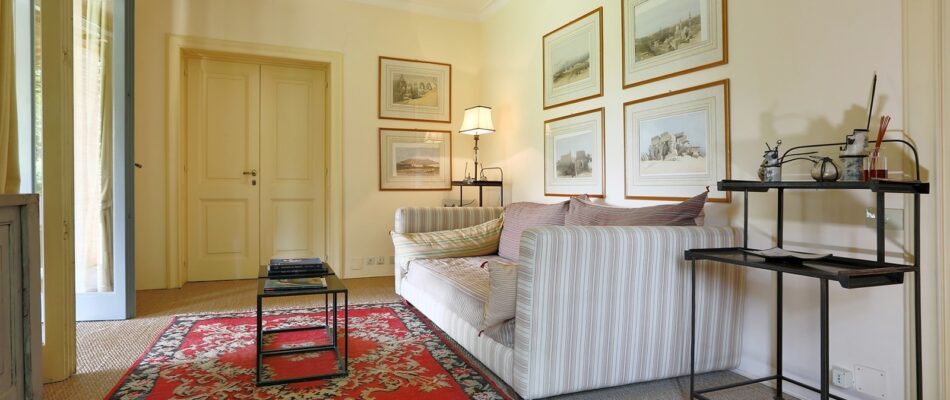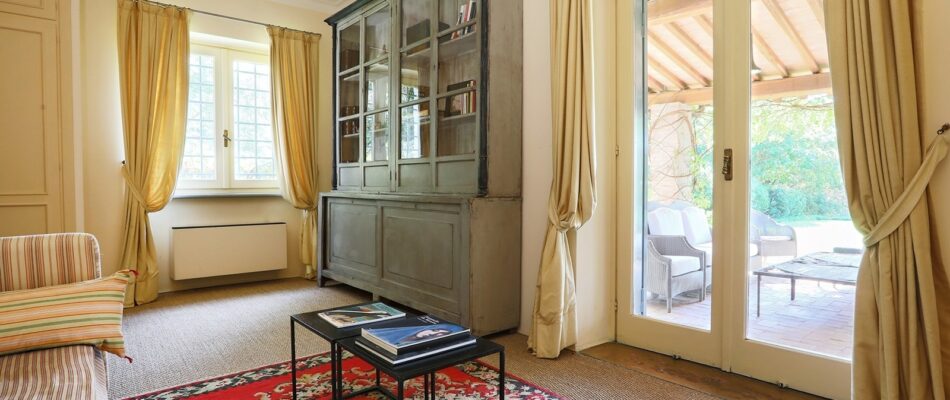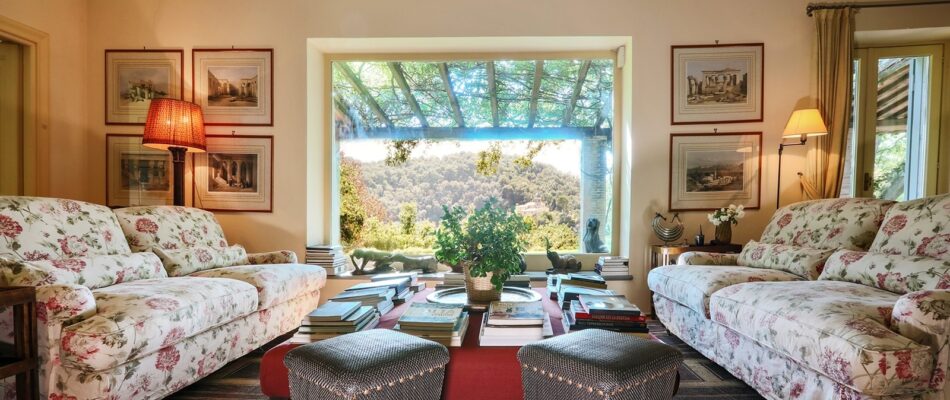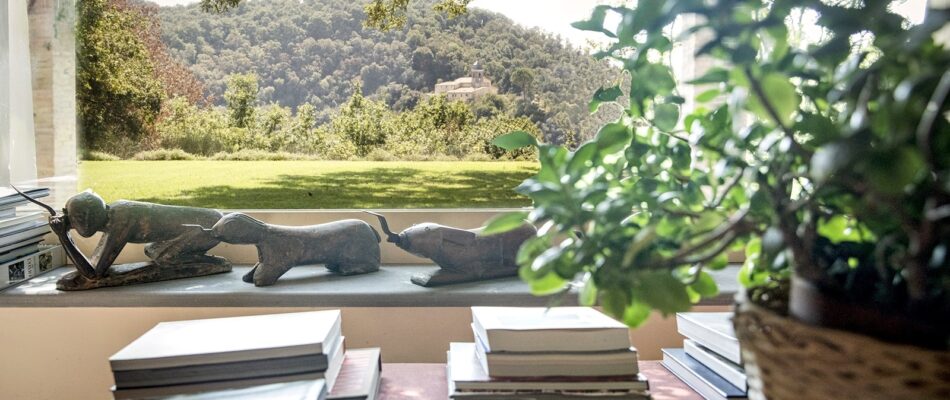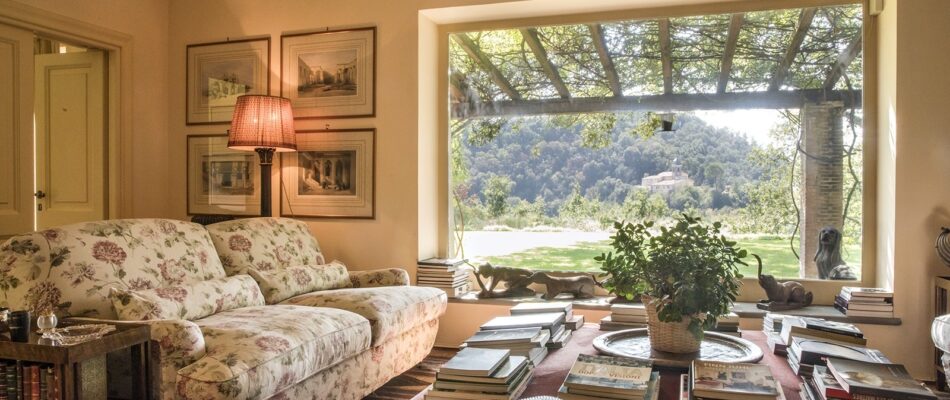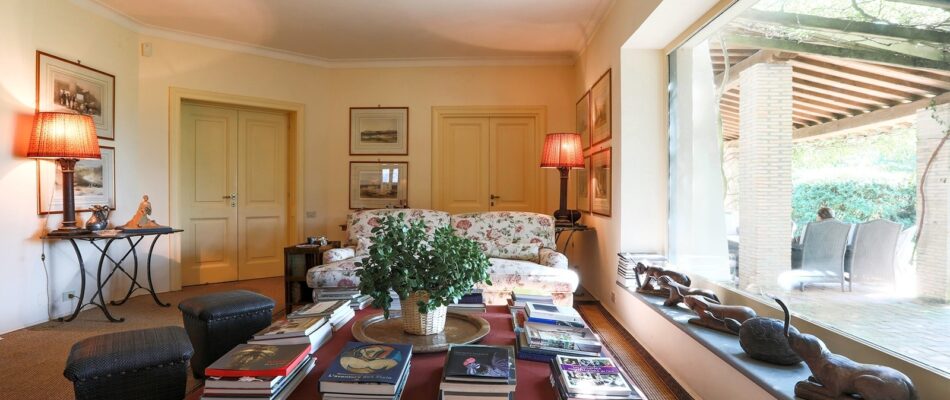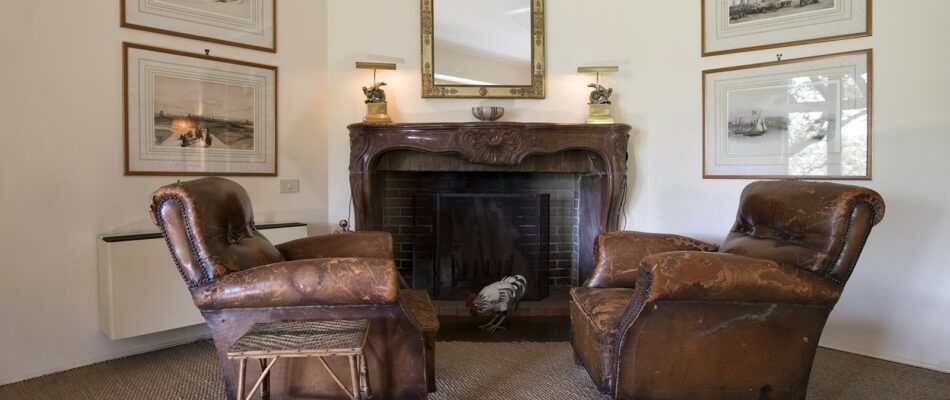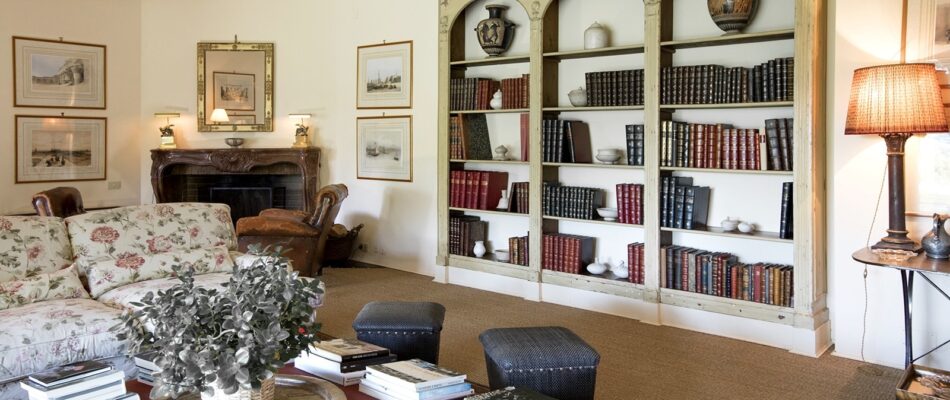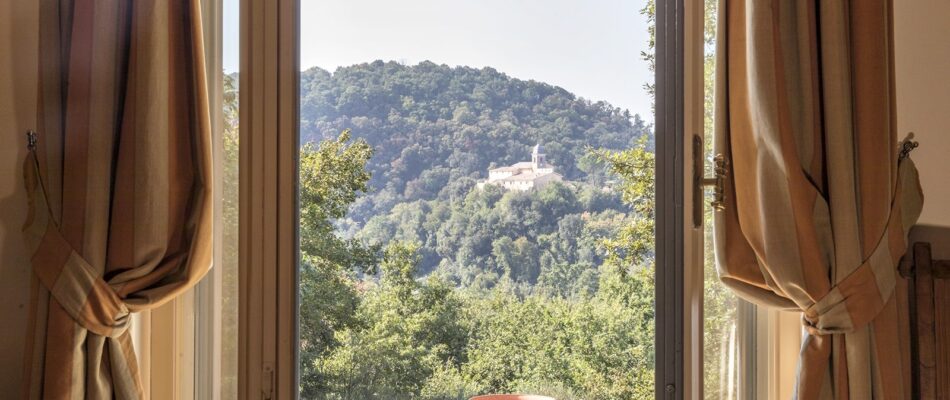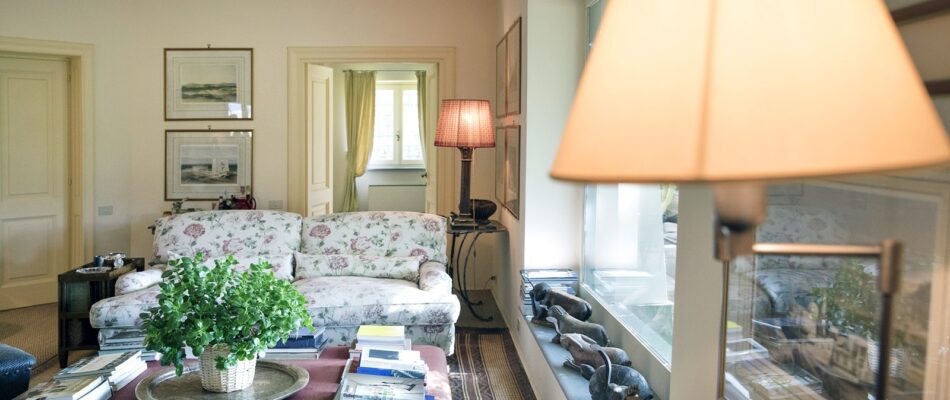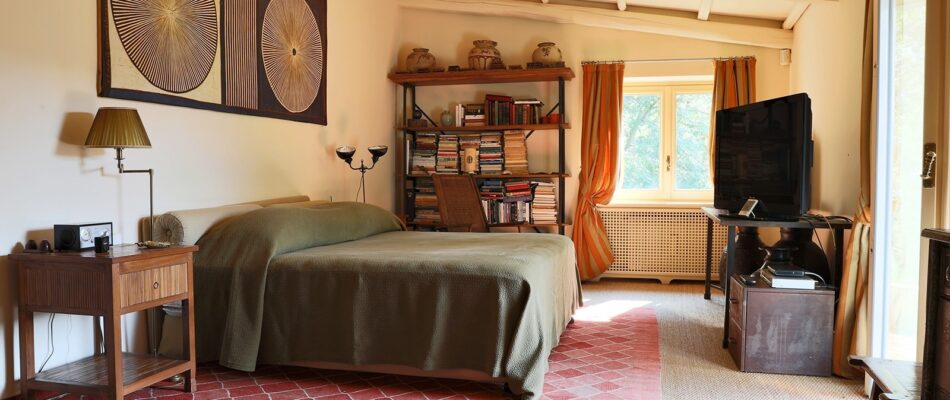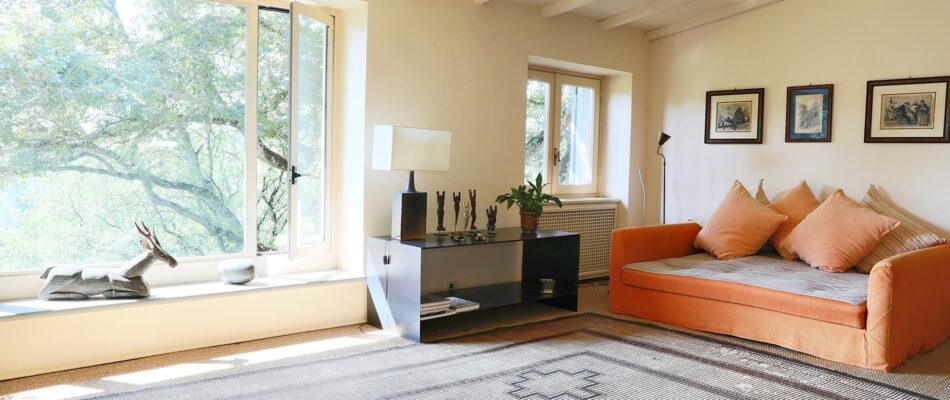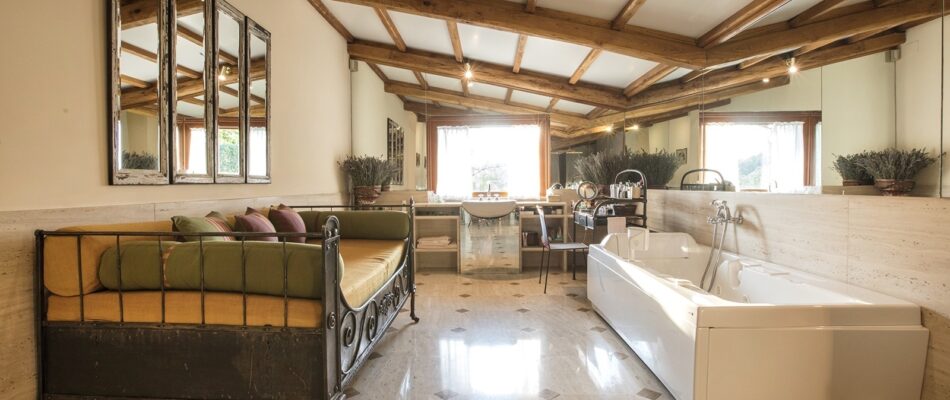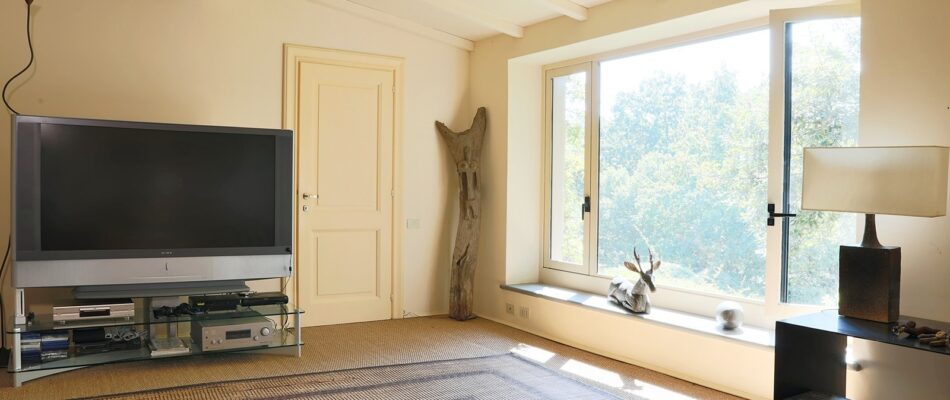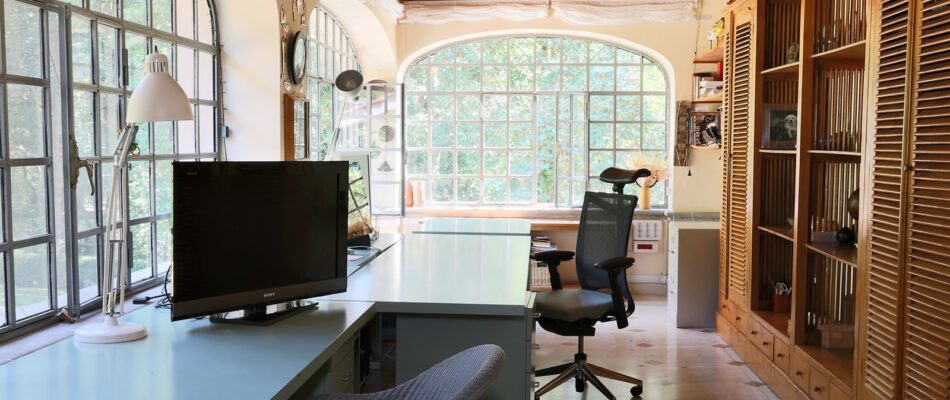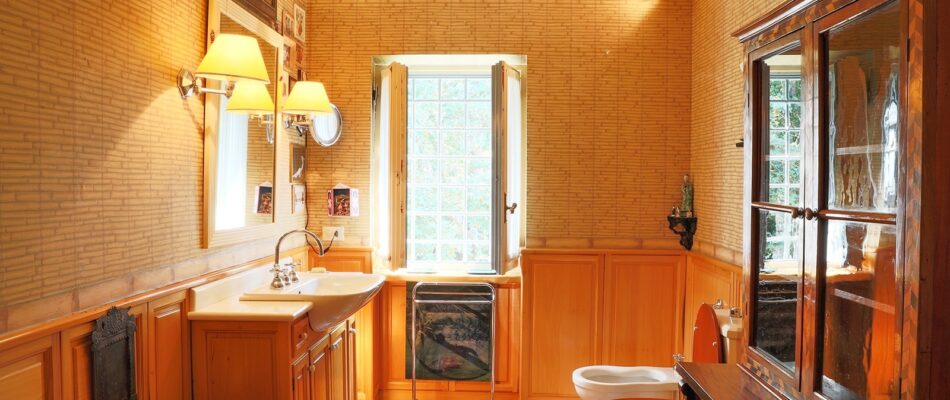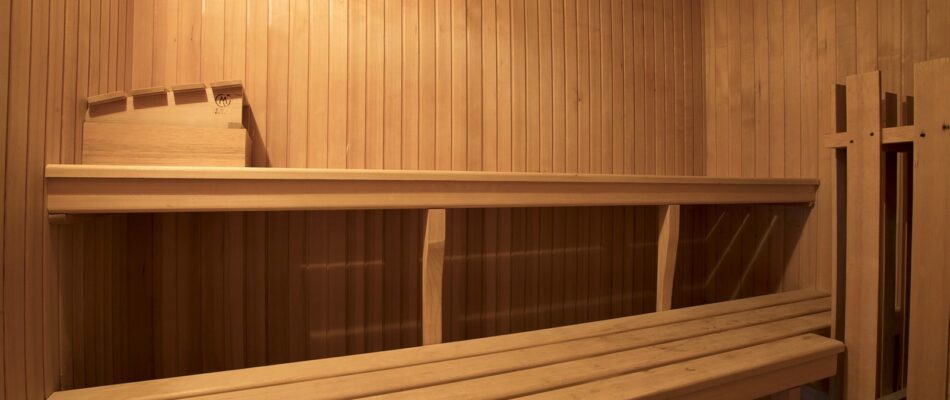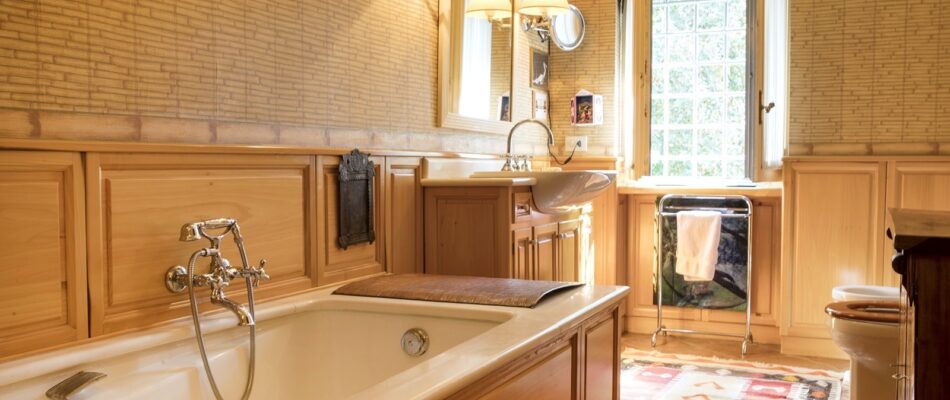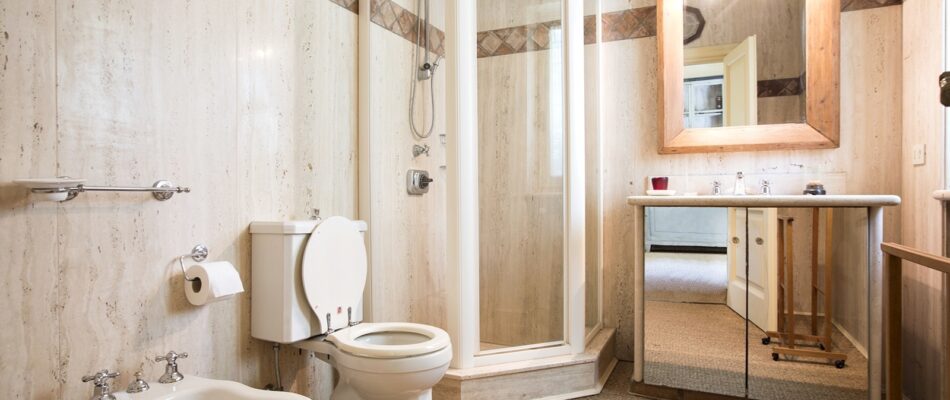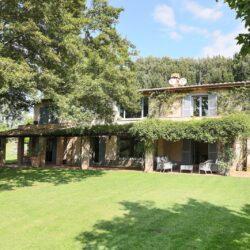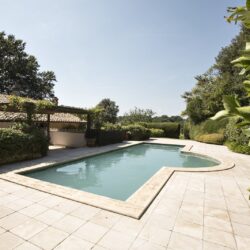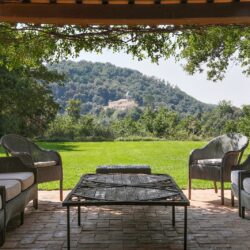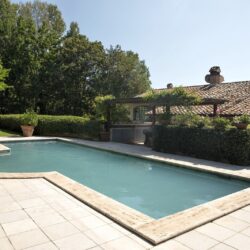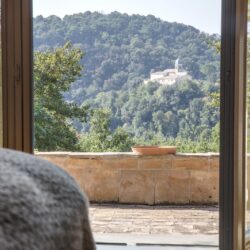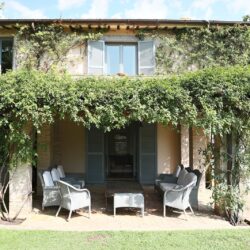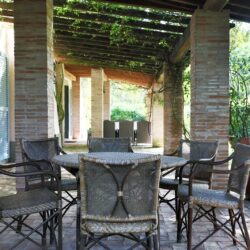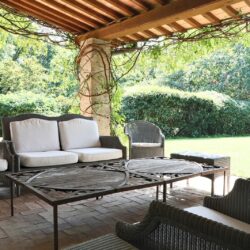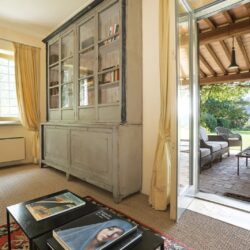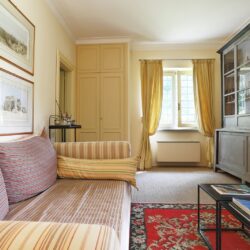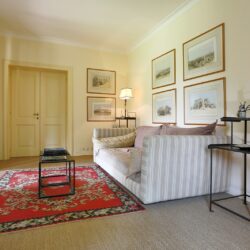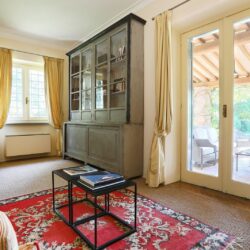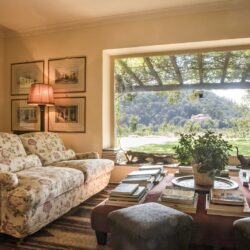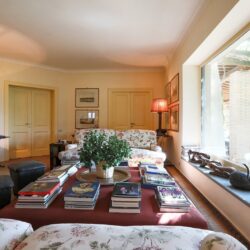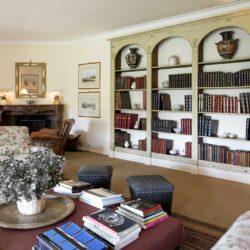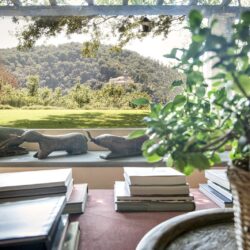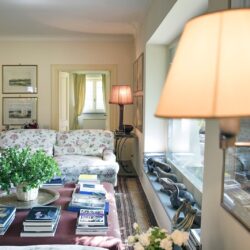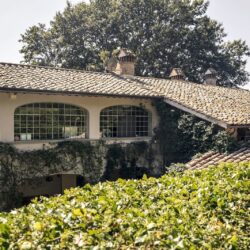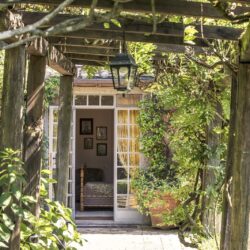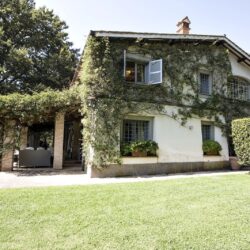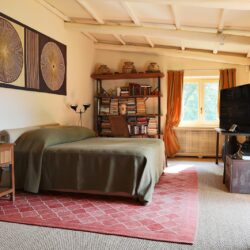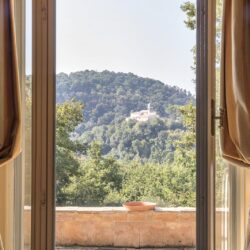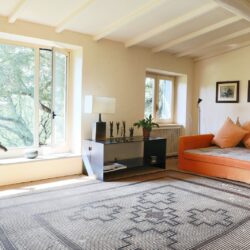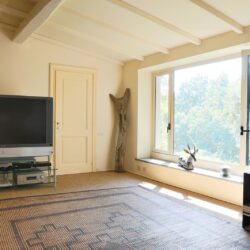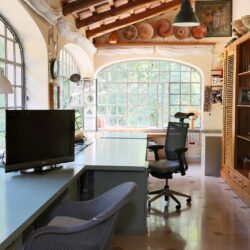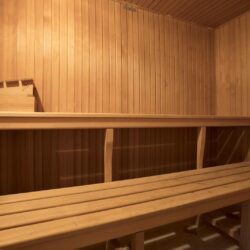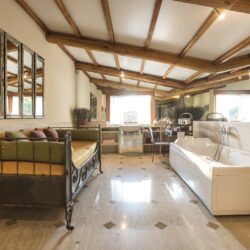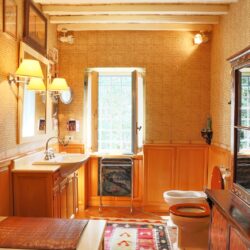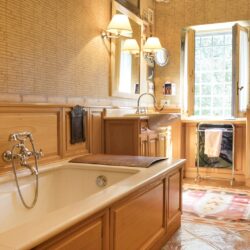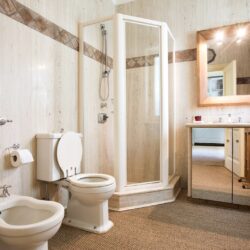ITALY, LAZIO, CAMPAGNANO DI ROMA
This villa is located in the Latium countryside about 30 kilometres from Rome, on the slopes of Monte Rizzano. It is a characteristic and prestigious 640 sqm. Villa with a view of the Sanctuary of the Madonna del Sorbo. It has an annexe and a 6 hectare garden/park with swimming pool .
LOCATION
The area also is close to the eastern coast of Lake Martignano and part of the Veio Regional Park.
The surrounding area consists of tufa plateaus used for agricultural cultivation.
Surrounded by woodland, the villa is located in a beautiful natural setting yet close to the historic centres rich in tradition, culture and art.
The location makes it easy to visit the most renowned cities of art and the most beautiful villages in central italy, such as Rome, Calcata, Sutri, the Odescalchi Castle and the Monte Gelato waterfalls.
The seaside resorts of Capalbio and Fregene are also easily accessible.
DESCRIPTION
The contemporary taste of the owners has given the house spacious, warm and welcoming spaces, while maintaining the characteristic style making it ideal for spending holidays with family and friends.
The two storey farmhouse property is approximately 640 sqm.
The villa consists of 6 bedrooms each with a bathroom, plus a guest bathroom. The bathrooms are spacious and contain both bathtubs and comfortable showers. in one of the double bedrooms, there is also a bathroom with walk-in sauna where one can relax.
The spacious living room with fireplace on the ground floor enjoys large windows that provide a wonderful view of the garden. Next, we find a study room with guest bathroom. This is followed by the dining room, also with a fireplace, a large functional kitchen with pantry, a wine cellar, a service room and a courtesy bathroom. To the side of the main building are two independent guest rooms, each with its own bathroom.
The upper floor is reached by an elegant staircase, which leads to a large relaxation area with a TV zone, characterised by a fully glazed wall facing the park, with a glimpse of the Madonnina Sanctuary in the distance. On either side are the two master bedrooms. The first, overlooking the balcony, has a study, walk-in wardrobe, large bathroom with bathtub and sauna. The second has a walk-in wardrobe, a bathroom with tub and a large panoramic studio with windows overlooking the surrounding greenery.
The villa has porches ideal for lunches and breakfasts, informal or formal dinners, and for moments of pure relaxation.
CONDITION AND FINISHES
The Villa, in perfect condition, enjoys excellent finishes and elegant touches of interior and exterior design. The fixtures and fittings are new and up to standard.
OUTSIDE
The property is set in a hilly area of 6 hectares with fruit trees and more. There is a magnificent private swimming pool with changing room and relaxation area directly connected to the villa. ideal for relaxing in total privacy.
This wonderful property lends itself both as a luxurious and comfortable holiday home and as a main residence for those who love to live immersed in nature.
It is perfect for those seeking privacy and peace but also for those who enjoy trekking and mountain biking with various nature trails.
